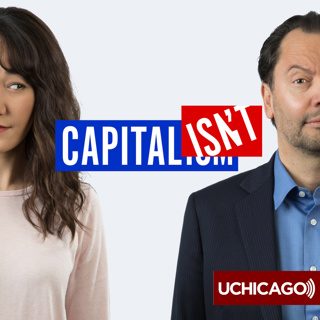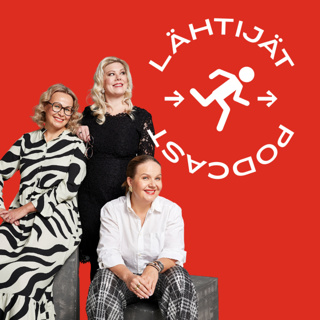
Ten Years Later Pt 3: The Next Crisis
In our third and final episode on the 2008 financial crisis, Kate & Luigi look at recent volatility in the markets and try to predict the cause of the next financial crash with help from prominent economists Robert Shiller and Lawrence Summers.
11 Loka 201834min

Live taping of Capitalisn't in Chicago on October 8th
Join us for a live taping of Capitalisn't on October 8 at the Union League Club in Chicago! Author Yascha Mounk will discuss his latest book, The People vs. Democracy, with co-hosts Luigi Zingales and Kate Waldock. Click here for details and free tickets! https://www.eventbrite.com/e/the-people-vs-democracy-with-yascha-mounk-katherine-waldock-and-luigi-zingales-tickets-49992656381
3 Loka 201829s

Ten Years Later Pt 2: The Aftermath
The second in a 3-part series on the 2008 financial crisis. In the weeks after the crash Luigi remembers petitioning the government for a better bank bailout. Looking back, he and Kate review everything from TARP to Dodd-Frank to see how we averted a worse recession. But did some CEOs get away with fraud?
27 Syys 201831min

Ten Years Later Pt 1: The Build-Up
The first in a 3-part series on the 2008 financial crisis. Kate tells Luigi about being an intern at Lehman Brothers when it collapsed and then we debate the causes including subprime mortgages, investor fraud and an ill-advised speech from former President George W. Bush.
13 Syys 201844min

Sex, Power and the Ivory Tower
Economists experience their first major #MeToo moment. Kate and Luigi explore the larger implications of a recent case involving a Columbia University professor who was found liable for retaliation against a female junior faculty member.
31 Elo 201829min

Antitrust Pt 3: The Europeans
Our third and final episode on antitrust law looks at the E.U.'s recent $5 billion fine against Google. Kate and Luigi hear about double-sided markets from Nobel-winning economist Jean Tirole and explore the E.U. vs. U.S. approach to antitrust enforcement.
16 Elo 201832min

Antitrust Pt 2: The Populists
The second in a special 3-part series on antitrust law. Kate and Luigi talk with Lina Khan, author of the article “Amazon’s Antitrust Paradox,” and a member of the New Brandeis Movement, which believes that antitrust enforcement should be more broadly applied and not just rely on consumer welfare.
2 Elo 201829min

Antitrust Pt 1: The Establishment
The first in a special 3-part series on antitrust law. In the wake of the approved merger between giants AT&T and Time Warner, Kate and Luigi talk with a leading expert, Carl Shapiro, about the evolving concept of consumer welfare and whether antitrust law needs to change with the times.
19 Heinä 201828min






















